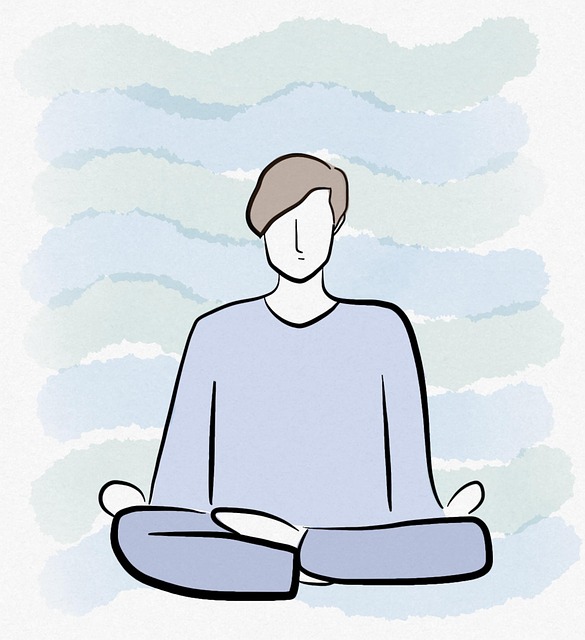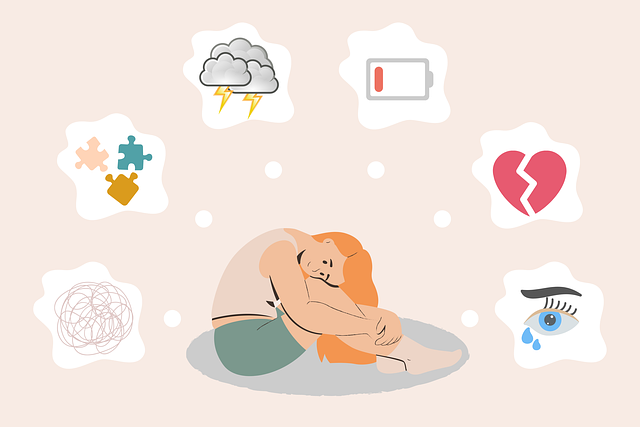Children's mental wellness is a crucial aspect of their overall growth, influenced by social interactions, family dynamics, and academic environments. Early intervention and proactive strategies, such as mindfulness exercises, journaling, physical activities, and setting boundaries, empower children to manage stress, build resilience, and improve their mental health. Personalized Mental Wellness Self-Care Routines, including therapy for children, identify individual needs and incorporate joy and relaxation. Open communication with healthcare providers trained in cultural competency prevents burnout and stigma, fostering a sense of belonging. Incorporating habits like mindfulness and regular exercise into daily routines supports emotional development. Overcoming obstacles with professional support and mental health awareness enables children to navigate challenges effectively.
Mental wellness is a cornerstone of overall health, especially for children. As therapy for children becomes increasingly accessible, understanding their mental wellness and implementing self-care routines are paramount. This article explores strategies to help parents and caregivers navigate this journey. We’ll discuss identifying individual needs, incorporating practical self-care strategies into daily life, overcoming challenges, and sustaining healthy routines tailored to each child’s unique requirements.
- Understanding Children's Mental Wellness and the Need for Self-Care
- Identifying Individual Needs: Creating a Personalized Routine
- Practical Strategies for Incorporating Self-Care into Daily Life
- Overcoming Challenges: Tips for Sustaining a Healthy Routine
Understanding Children's Mental Wellness and the Need for Self-Care

Children’s mental wellness is a crucial aspect of their overall development that often requires dedicated attention and care. Just as adults benefit from therapy and self-care practices, children too can flourish with similar support systems. The need for child mental health services has gained significant importance in recent years, highlighting the value of early intervention and proactive measures. Many factors contribute to a child’s mental wellness, including their social interactions, family environment, academic experiences, and overall emotional well-being.
Encouraging children to develop healthy self-care routines can significantly enhance their ability to manage stress, build resilience, and improve overall mental health. Self-care routine development for better mental health involves teaching them simple yet effective practices like mindfulness exercises, journaling, physical activities, and setting boundaries. These strategies not only promote immediate relaxation but also foster long-term coping mechanisms, enabling children to navigate challenging situations with greater ease.
Identifying Individual Needs: Creating a Personalized Routine

Identifying Individual Needs is a crucial step in developing a personalized Mental Wellness Self-Care Routine. Every individual, especially children who often require Therapy for Children, has unique circumstances and preferences. A successful routine should be tailored to address specific mental health concerns while incorporating activities that bring joy and relaxation. This may involve combining traditional practices like meditation with creative outlets such as art therapy or music. By understanding one’s triggers, coping mechanisms, and interests, individuals can create a sanctuary within their daily lives.
This process requires introspection and open communication with reliable support systems, including Healthcare Providers with Cultural Competency Training who can offer guidance tailored to diverse backgrounds. Recognizing the importance of Burnout Prevention and Mental Illness Stigma Reduction Efforts, one must design self-care rituals that not only nurture mental health but also foster a sense of belonging and acceptance. Such an approach ensures that the routine remains adaptable and meaningful over time.
Practical Strategies for Incorporating Self-Care into Daily Life

Incorporating self-care into daily life is a vital step towards cultivating mental wellness, especially for children who are navigating their emotional landscapes. Practical strategies include setting aside dedicated time for relaxation and activities that foster mindfulness, such as meditation or nature walks. Engaging in regular physical activity, maintaining a balanced diet, and ensuring sufficient sleep are foundational practices that support both physical and mental health. Integrating these habits into routines can be as simple as waking up 15 minutes earlier to practice deep breathing exercises or engaging in age-appropriate yoga together as a family.
For parents seeking additional guidance, therapy for children can offer valuable tools tailored to their unique needs. A mental wellness podcast series production might introduce families to diverse self-care techniques and promote mental health awareness. Moreover, healthcare provider cultural competency training equips professionals with the skills to support diverse populations, ensuring that every child receives culturally sensitive care. By combining these approaches, parents can create a holistic environment that prioritizes mental wellness for their children.
Overcoming Challenges: Tips for Sustaining a Healthy Routine

Developing a mental wellness self-care routine can be transformative, but maintaining it amidst life’s challenges is crucial. Overcoming obstacles and setbacks is an integral part of fostering lasting well-being. One effective strategy to stay on track is by incorporating structured practices into your daily life, such as mindfulness exercises or journaling. These activities not only provide moments of calm but also offer valuable insights into one’s thoughts and emotions, helping to identify triggers for anxiety or low mood.
Seeking professional support, like therapy for children, can be a powerful tool for navigating complex issues. Therapists equipped with evidence-based techniques can teach coping mechanisms tailored to individual needs, addressing concerns like anxiety relief and self-esteem improvement. Mental health awareness and education are key; understanding the mind’s complexities empowers individuals to persist in their self-care journeys, ensuring they can weather any challenges that come their way.
Incorporating a mental wellness self-care routine is not just beneficial; it’s essential for children’s overall well-being. By understanding and addressing individual needs, parents and caregivers can create personalized routines that promote resilience and healthy coping mechanisms. Through practical strategies and overcoming challenges, fostering a sustainable self-care habit becomes achievable. Remember, seeking therapy for children when needed is a proactive step towards ensuring their mental health thrives in a supportive environment.












